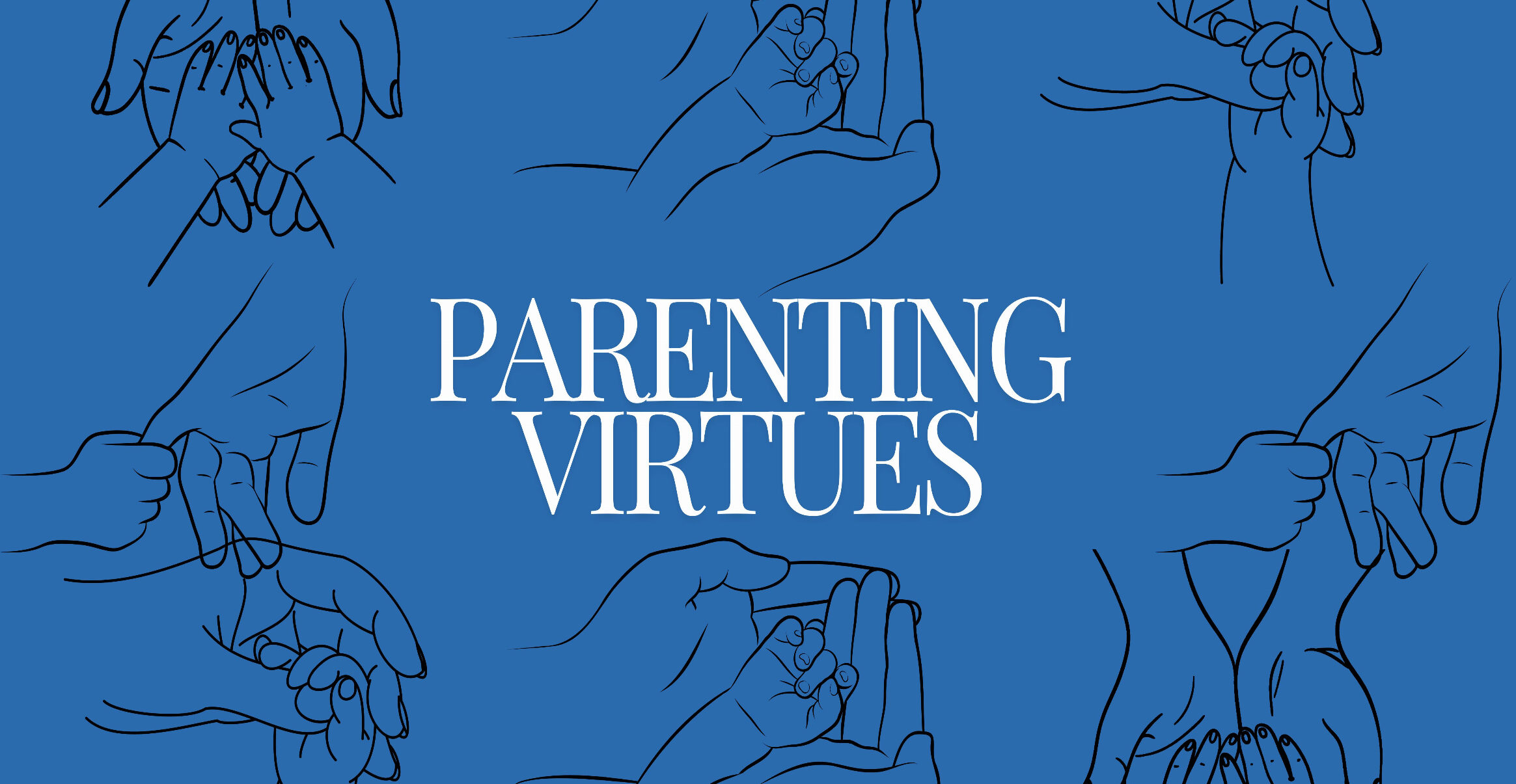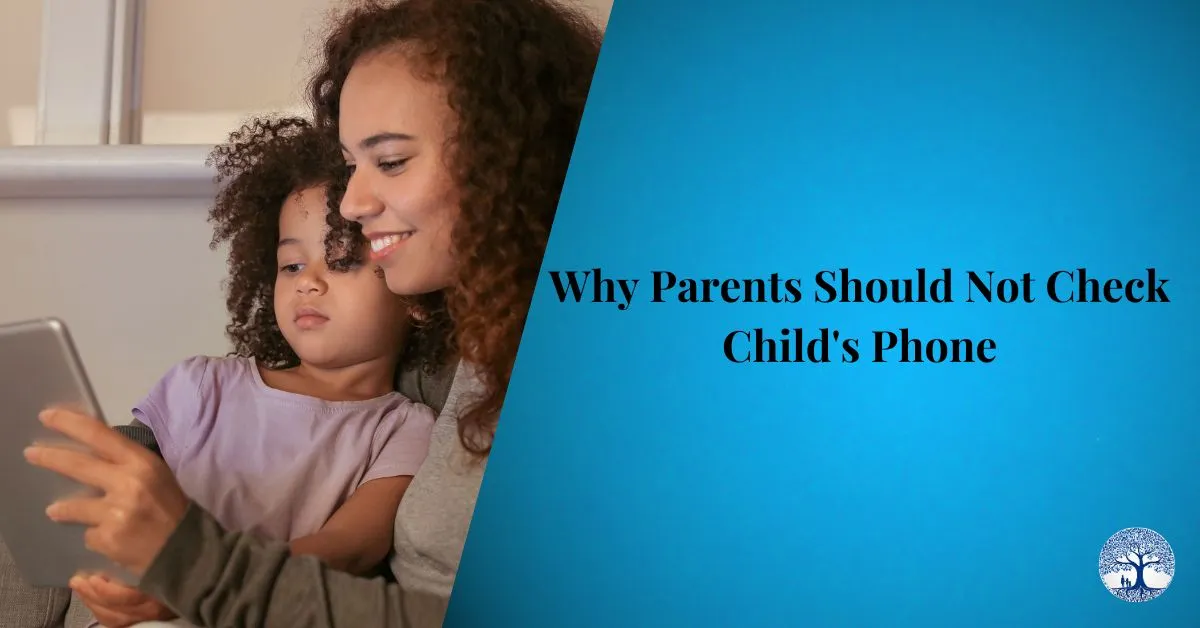Introduction
In today’s digital age, it’s common for parents to worry about their child’s online activities, leading many to question whether they should monitor their child’s phone. Statistics show that a significant percentage of parents regularly check their child’s phone, believing it’s a necessary step to protect them from online dangers. However, while this concern is understandable, it’s important to consider whether this approach might actually cause more harm than good. This article delves into the reasons why parents should rethink the instinct to check their child’s phone, exploring the potential negative impacts on trust, communication, and the overall parent-child relationship.
Importance of Trust in Parent-Child Relationships
Trust as the Foundation
Trust is the cornerstone of any healthy relationship, and this is especially true in the bond between parents and children. When parents cultivate a trusting environment, they create a foundation where children feel secure, valued, and understood. This trust is vital as it encourages open communication, allowing children to share their thoughts, feelings, and experiences without fear of judgment or punishment.
Consequences of Breaching Trust
However, when parents choose to check their child’s phone, it can send a powerful message that trust is lacking. This breach of privacy can lead to long-term damage in the relationship, causing children to become more secretive, distant, and less likely to confide in their parents. Over time, this erosion of trust can create barriers that are difficult to rebuild, ultimately weakening the parent-child connection. In the context of parenting, maintaining and nurturing trust is not just important—it’s essential for fostering a positive, open, and healthy relationship.

Promoting Healthy Communication Instead of Surveillance
Communication Over Control
In the delicate balance of parenting, effective communication with teens often proves far more beneficial than relying on surveillance or control. Open communication creates an environment where teens feel valued and understood, making them more likely to share their experiences, concerns, and challenges with their parents. This dialogue fosters a deeper connection and helps parents guide their children through the complexities of adolescence without the need to invade their privacy.
Building Mutual Respect
When parents choose conversation over monitoring, they not only respect their child’s growing need for independence but also build mutual respect. This respect encourages teens to be more honest and forthcoming, reducing the likelihood of secretive or rebellious behavior. By prioritizing communication over control, parents can address potential issues early on, creating a more harmonious and trusting relationship that benefits both parties in the long run.
Encouraging Digital Responsibility and Independence
Teaching Digital Literacy
In today’s digital age, teaching teens digital responsibility is crucial, and it’s a task that extends far beyond simply monitoring their online activities. By guiding children in developing strong digital literacy, parents can equip them with the skills needed to navigate the online world safely and responsibly. This involves educating them about the potential risks of sharing personal information, understanding the impact of their digital footprint, and recognizing the signs of online threats like cyberbullying or scams.
Empowering Autonomy
Instead of relying on constant supervision, parents can focus on empowering their teens to make informed decisions independently. Encouraging this autonomy not only fosters a sense of responsibility but also helps teens build confidence in their ability to manage their digital lives. Allowing children the space to learn and grow independently in the digital world is essential for their development, as it prepares them to handle challenges on their own while still knowing they can turn to their parents for guidance when needed. Promoting digital responsibility for teens is about creating a balance between support and independence, helping them to become savvy and self-reliant digital citizens.
Potential Psychological Impacts on Children
Erosion of Privacy
When parents choose to monitor their child’s phone, it can lead to significant psychological effects, particularly when it comes to the erosion of privacy. For children and teens, having a sense of privacy is essential for their emotional development and sense of self. When this privacy is violated, even with the best intentions, it can lead to feelings of mistrust and resentment. Children who feel that their personal space is constantly invaded may struggle to develop a healthy sense of independence, and they might become more secretive or distant as a result.
Increased Anxiety and Stress
Moreover, the constant monitoring by parents can heighten anxiety and stress in children. Knowing that their every move online is being watched can create a pressure to conform or to hide aspects of their lives, leading to an increased sense of unease. This stress can manifest in various ways, including difficulty concentrating, mood swings, or even physical symptoms like headaches and stomachaches. Over time, these psychological effects can have a profound impact on a child’s well-being, potentially leading to long-term issues with trust, self-esteem, and mental health. Understanding the psychological effects of parental monitoring is crucial for parents who want to protect their children without inadvertently causing harm.

Risk of Creating Rebellion
Rebellion as a Reaction
Strict monitoring of a teenager’s phone can often backfire, leading to the very behavior parents are trying to prevent—rebellion. When teens feel that their autonomy is being stifled by constant surveillance, they may react by pushing back against parental authority. This rebellion isn’t just a random act of defiance; it’s often a direct response to feeling controlled or mistrusted. The more parents tighten their grip, the more likely teens are to engage in secretive or risky behavior as a way to reclaim their sense of independence.
Trust Issues
Furthermore, the act of checking a child’s phone can severely erode the trust between parent and child. Trust is a two-way street, and when teens feel that their privacy is being routinely invaded, it can lead to feelings of betrayal. Over time, this lack of trust can cause teens to become more withdrawn and less likely to share important aspects of their lives with their parents.
Instead of fostering open communication, strict monitoring can create an environment of secrecy and defiance, where teens feel they must hide their true selves. Understanding the causes of rebellious behavior in teenagers is crucial for parents who want to maintain a healthy, trusting relationship with their children while guiding them through the challenges of adolescence.
Legal and Ethical Considerations
Understanding Privacy Rights
When it comes to monitoring a child’s phone, legal and ethical considerations play a significant role that parents must carefully navigate. Legally, the right to privacy varies depending on the region, but many places recognize that children, particularly teenagers, have a certain expectation of privacy, even within the family unit. While parents are generally allowed to oversee their child’s activities for safety reasons, there is a fine line between protection and infringement. Understanding children’s privacy rights is crucial, as overstepping legal boundaries can lead to unintended consequences, including legal challenges or strained relationships.
Ethical Dilemmas
Beyond the legal aspect, the ethical implications of invading a child’s personal space are equally important. Ethically, parents face a dilemma: balancing the need to keep their children safe with the responsibility to respect their autonomy and dignity. Invading a child’s privacy by checking their phone can undermine their sense of self-worth and trust in the parent. It raises questions about respect and the role of parents as guardians rather than monitors.
Parents must consider whether their actions align with the values they wish to instill in their children—values like trust, respect, and the right to privacy. Navigating these legal and ethical waters requires careful consideration and a balanced approach, ensuring that a child’s rights are respected while still providing necessary guidance and protection.
Alternatives to Phone Checking
Parental Controls and Monitoring Apps
For parents concerned about their child’s online safety but wary of invading their privacy, exploring parental controls and monitoring apps can offer a balanced approach. These tools allow for general oversight of a child’s digital activities without the need to constantly check their phone. For example, many apps provide features that allow parents to monitor screen time, set app usage limits, and filter content, all while respecting the child’s personal space. These solutions can offer a way to ensure safety without compromising trust or autonomy.
Setting Boundaries and Guidelines
In addition to technological solutions, setting clear boundaries and guidelines around phone use can be an effective strategy. Parents can have open discussions with their children about appropriate phone usage, emphasizing the importance of balancing screen time with other activities. Establishing rules, such as designated phone-free times or areas in the home, can help manage phone use without resorting to invasive monitoring. By collaboratively setting these expectations, parents foster a sense of responsibility and mutual respect, which can be more effective in guiding behavior than constant surveillance. Adopting these parental controls alternatives and maintaining clear communication about phone use helps protect children while preserving their privacy and autonomy.

Conclusion
In conclusion, while parental concern for a child’s online safety is both natural and important, frequently checking their phone can have unintended negative effects. It can erode the foundational trust in the parent-child relationship, foster anxiety and rebellious behavior, and even infringe on the child’s right to privacy. Instead of surveillance, fostering open communication and setting clear boundaries can help maintain a respectful and supportive environment. By reflecting on their approach and considering alternatives that honor their child’s privacy, parents can strengthen their relationship and guide their children more effectively. Encouraging a trust-based, communicative approach not only preserves the child’s sense of autonomy but also builds a stronger, more positive connection between parent and child.
Additional Resources
For parents seeking further insight into why checking their child’s phone might not be the best approach, several authoritative books offer valuable perspectives and guidance. Consider exploring titles such as “Protecting Your Kid Online: The Ultimate Parent’s Guide to Online Safety” by Jane A. and “Digital Parenting: A Guide to Protecting Your Child Online” by Sophia Pettit and Daniel Rankine. These books provide comprehensive advice on navigating digital parenting challenges while emphasizing the importance of trust and communication over invasive monitoring. By delving into these resources, parents can gain a deeper understanding of the potential impacts of phone monitoring and discover more effective strategies for fostering a healthy and respectful relationship with their children.
Check out our blog Effective Communication Strategies With Teenagers, for more such content!
Frequently Asked Questions (FAQs)
1. Is it ever okay to check my child’s phone?
It’s important to strike a balance between safeguarding your child and respecting their privacy. Checking your child’s phone occasionally to ensure their safety is different from constant monitoring. It’s generally advisable to focus on open communication and setting clear guidelines rather than invasive checks. Regular discussions about online behavior and digital responsibility can often be more effective than monitoring.
2. How can I talk to my child about online safety without invading their privacy?
To address online safety without invading privacy, engage in open and honest conversations about the risks and responsibilities of digital life. Discuss topics like social media usage, online predators, and digital footprints in a non-judgmental manner. Encourage your child to ask questions and share their experiences, fostering an environment of trust where they feel comfortable discussing their online activities.
3. What are some signs that my child might be engaging in risky online behavior?
Signs of risky online behavior can include sudden changes in mood, secrecy about phone use, or frequent arguments about screen time. If your child becomes unusually withdrawn or avoids discussing their online activities, it may be a signal to address these issues through open dialogue rather than invasive monitoring. Maintaining a supportive and communicative relationship can help uncover and address any concerns.
4. How can I set effective boundaries for my child’s phone use without checking their device?
Setting effective boundaries involves establishing clear rules and expectations regarding phone use. Implement designated phone-free times and areas in the home to encourage balance. Discuss the importance of these boundaries with your child and involve them in setting the rules to ensure they understand and agree with them, which can help maintain respect and cooperation.
5. What are the potential long-term effects of constant monitoring on my child’s development?
Constant monitoring can undermine a child’s sense of privacy, leading to increased anxiety and stress. It may also foster rebellious behavior and erode trust in the parent-child relationship. Long-term effects can include difficulties with self-esteem and independence, as well as strained communication with parents. Focusing on trust and open dialogue, rather than surveillance, supports healthier emotional and psychological development.


One Comment